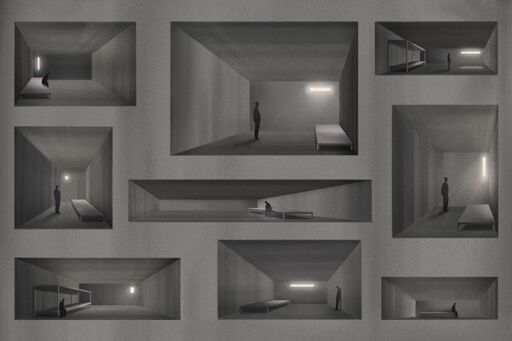Jails are notorious for inhumane conditions. Detainees often complain of violence, inedible food, limited programming and subpar healthcare. Lack of sunlight may be an unexpected addition to the list. But sunlight deprivation causes a myriad of serious issues, including high blood pressure, osteoporosis, and an increased risk of diabetes, as well as a host of mental health problems such as depression and sleep disorders.
Jails built in the last century often have few windows and little room for recreation and natural light, making them “obsolete” by today’s design standards, according to Kenneth Ricci, prison and jail architect with Nelson Worldwide, a design firm.
Bringing sunlight and fresh air into jails often takes a back seat to other pressing issues. But a lawsuit in San Francisco suggests forcing detainees to live in the dark could violate their constitutional rights. In 2021, a group of men awaiting trial at two California jails sued the city and county of San Francisco for being confined without fresh air and sunlight.
U.S. Magistrate Judge Sallie Kim ultimately agreed with the men. In 2023, she ruled that the jails had violated the Constitution’s due process clause. The officials “created the problem by building a jail without a secured outdoor exercise yard and then relies upon that problem to claim that it cannot provide a secure way for inmates to have access to direct sunlight,” she wrote.
These issues are top of mind for residents who have followed the opening and closure of jails in St. Louis, Cleveland, and Jackson, Mississippi, where detainees can go years without seeing the sun. The jails in all three cities have requirements to provide sunlight and fresh air, either mandated by jail policy, or by the state or federal governments. Yet all three have consistently fallen short, according to jail officials and state and federal inspection reports.
Abolish jails etc.



